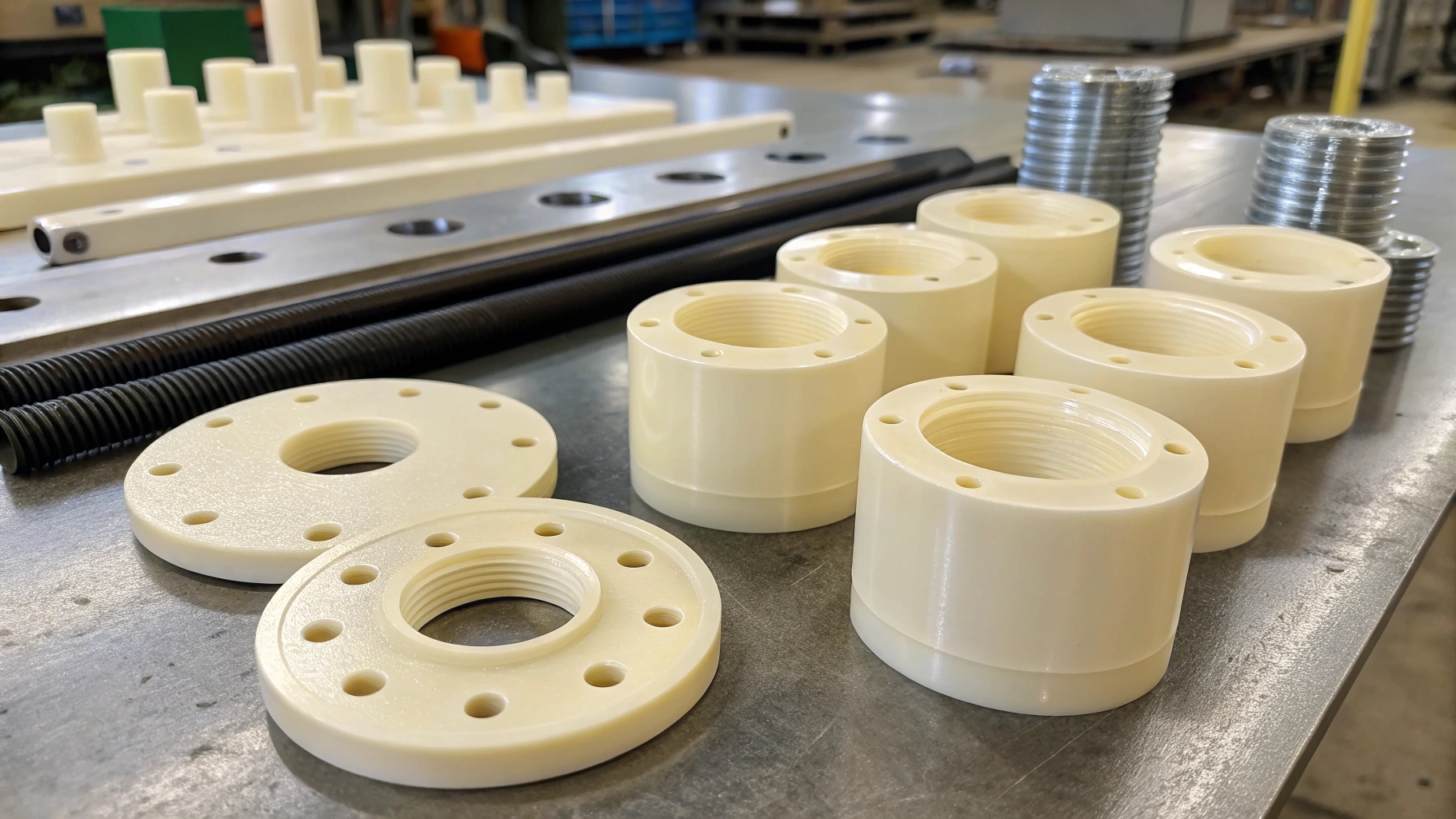
Nylon machining offers durability and versatility for various industries, but it requires expertise and precision.
Nylon machining refers to shaping nylon materials into precise parts using CNC or other manufacturing techniques. It's vital for industries needing lightweight yet strong components.
Explore the benefits and challenges of nylon machining, and discover its applications across industries.
What is Nylon and its Key Properties?
Nylon is widely used in machining due to its remarkable balance of strength, flexibility, and lightweight properties.
Nylon is a synthetic polymer known for its toughness, resistance to wear, and flexibility, making it ideal for precision machining.
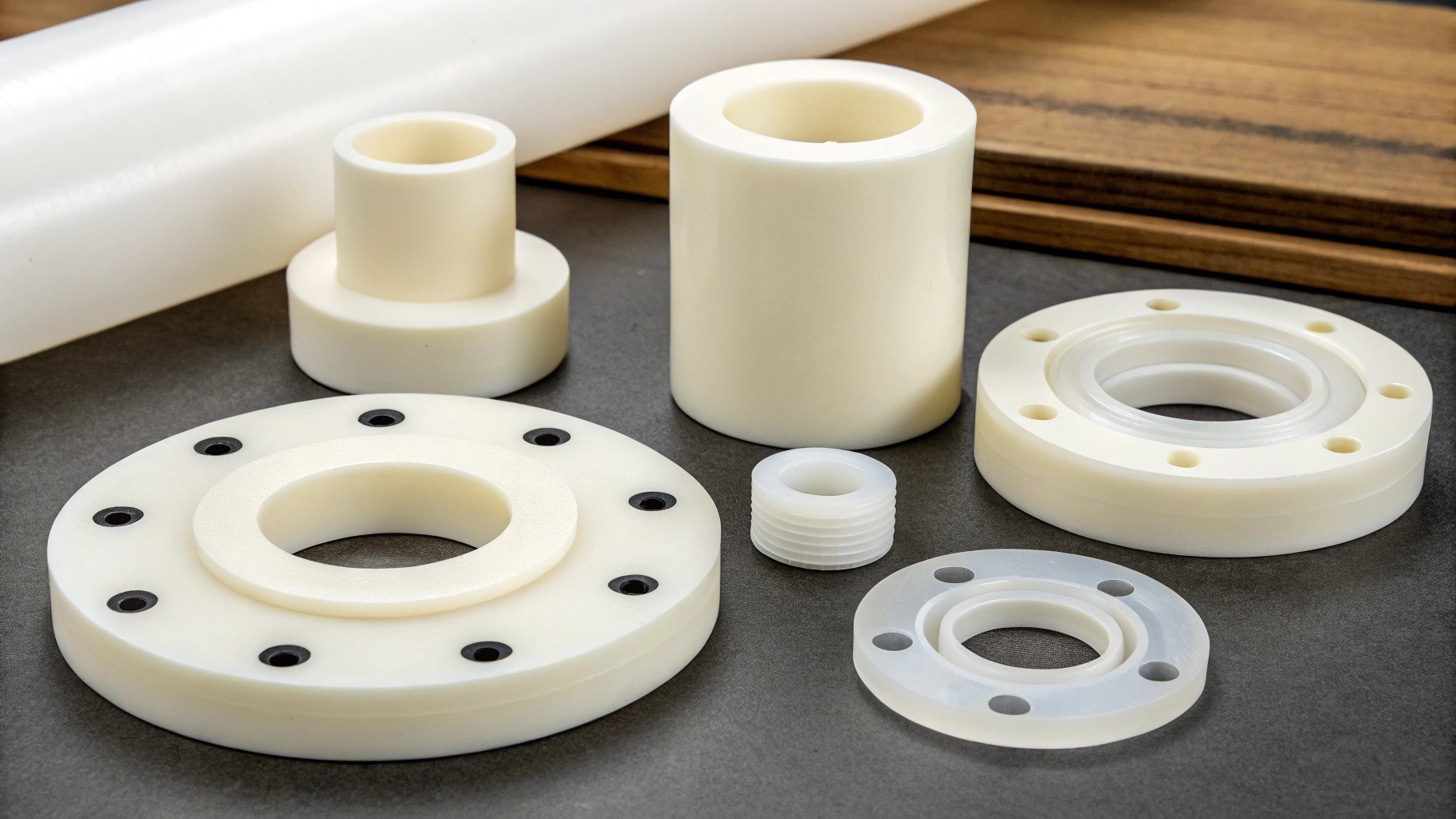
Key Properties of Nylon
- Mechanical Strength: Nylon exhibits high tensile strength, making it suitable for load-bearing applications 1.
- Wear Resistance: Its natural lubricity reduces friction and enhances wear resistance.
- Chemical Resistance: Nylon resists oils, fuels, and many solvents, ensuring durability.
- Lightweight: Its low density makes it ideal for applications needing reduced weight without compromising strength.
| Property | Value |
|---|---|
| Tensile Strength | 90–185 MPa |
| Melting Point | Approximately 220°C |
| Density | 1.14 g/cm³ |
| Thermal Expansion | Moderate |
| Moisture Absorption | 0.7%–1.2% (can vary by grade) |
Why Nylon is Chosen for Machining
Nylon's machinability and versatile properties make it a preferred material for industries like automotive, medical, and aerospace. Its ability to maintain performance under stress ensures reliability for critical applications.
What is the Machining Tolerance for Nylon?
Machining nylon to tight tolerances demands precision due to its thermal expansion and flexibility.
Nylon's machining tolerance usually falls between ±0.1 mm to ±0.2 mm. Factors such as part design, process, and environmental conditions influence this range. Due to moisture absorption and thermal expansion, nylon may require stabilization for tighter tolerances.
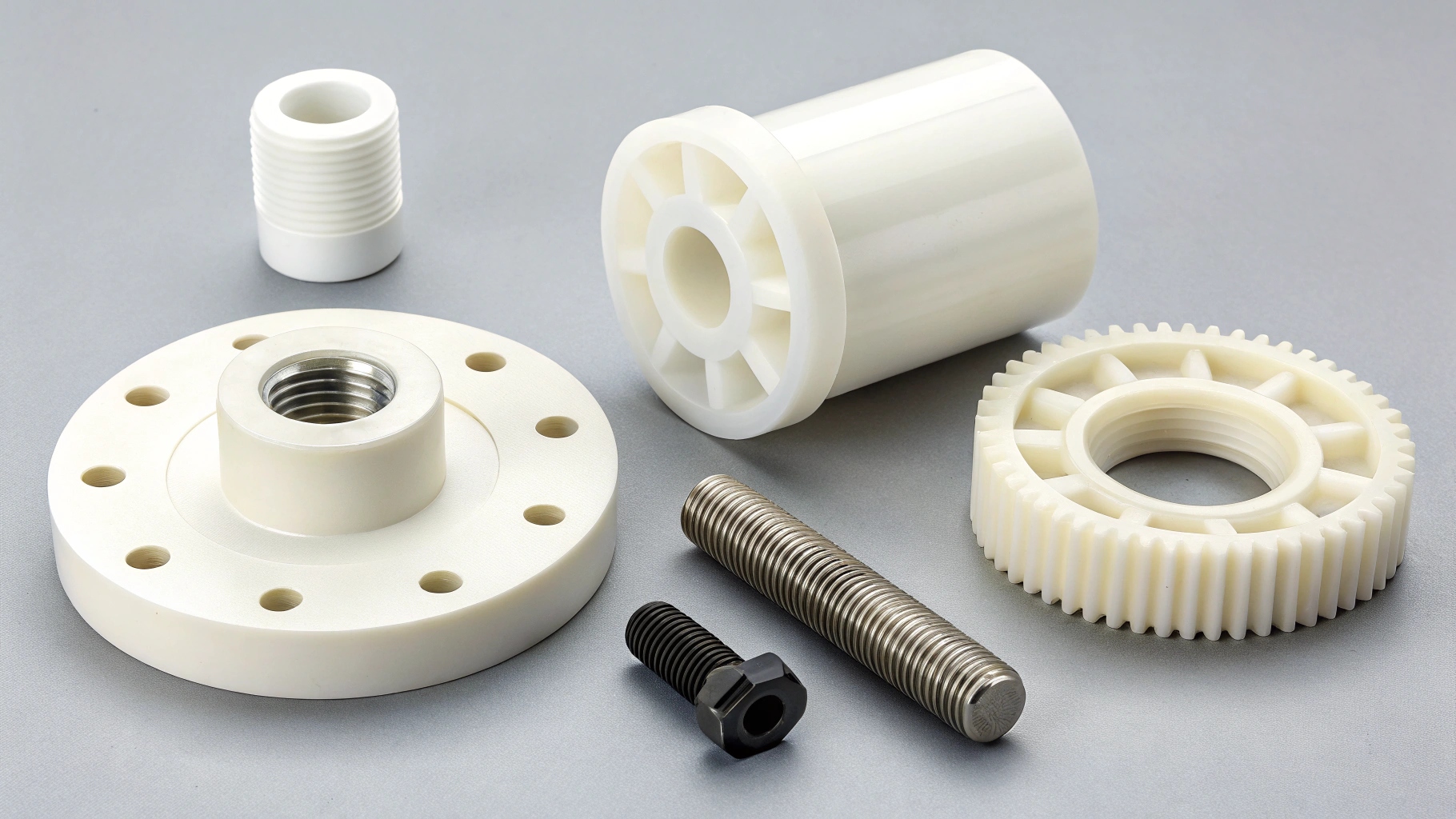
Factors Affecting Nylon Tolerances
- Thermal Expansion: Nylon expands with heat, making temperature control vital.
- Moisture Absorption: Absorbed moisture can cause swelling and dimensional instability.
- Machining Setup: Tool sharpness, feed rates, and speeds directly influence accuracy.
| Machining Parameter | Ideal Range |
|---|---|
| Cutting Speed | 200–400 m/min |
| Feed Rate | Moderate, avoid high speeds |
| Coolants | Air or minimal liquid use |
Achieving Precision in Nylon Machining
Careful planning and the right CNC programming strategies ensure that nylon parts meet stringent tolerance requirements. It's essential to allow for material relaxation after initial cuts to improve dimensional stability.
Common Nylon Grades Used in Machining
Nylon comes in various grades, each tailored for specific applications and machining needs.
Common nylon grades for machining include Nylon 6, Nylon 66, Nylon 12, and filled types (glass or oil-filled). Nylon 6 provides toughness, while Nylon 66 adds heat resistance. Nylon 12 offers low moisture absorption, and filled grades enhance strength or reduce friction. These materials are ideal for industrial, automotive, and electronic applications due to their versatility and durability.
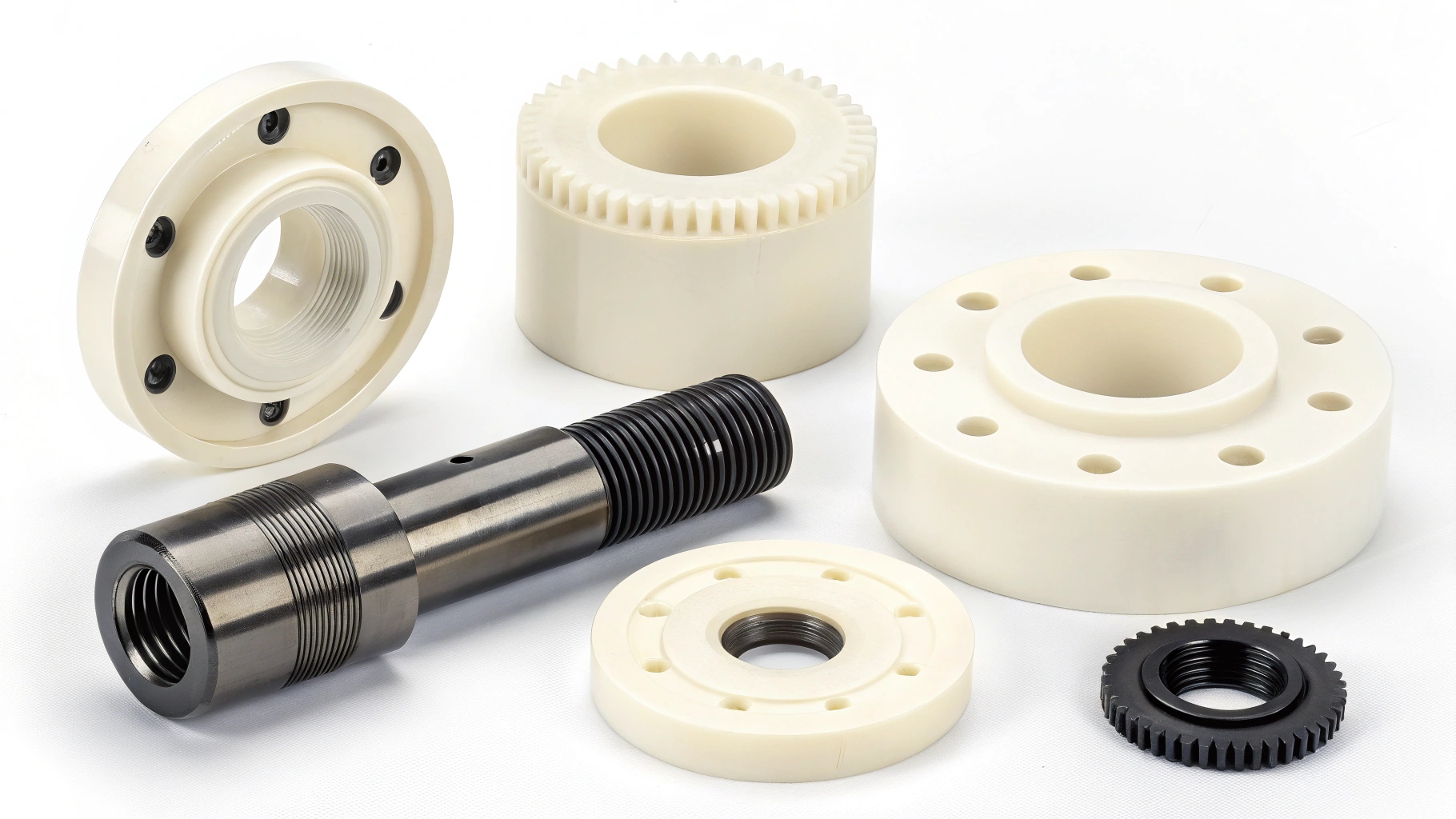
Types of Nylon for Machining
- Nylon 6: Offers high strength and toughness. It's widely used for structural parts.
- Nylon 6/6: Similar to Nylon 6 but with higher mechanical strength and thermal resistance.
- Nylon 12: Features low moisture absorption, making it ideal for humid environments.
| Nylon Grade | Key Feature | Common Applications |
|---|---|---|
| Nylon 6 2 | High toughness | Gears, bearings |
| Nylon 6/6 | Superior strength | Bushings, structural parts |
| Nylon 12 | Low moisture absorption | Hydraulic seals |
Choosing the Right Nylon Grade
Selecting the correct grade ensures optimal performance. For example, Nylon 12 is ideal for outdoor applications due to its moisture resistance, while Nylon 6/6 works well in high-load scenarios.
Nylon Machining Challenges and Solutions
Machining nylon comes with unique challenges, but proper techniques can overcome them.
Challenges include thermal expansion, surface finish issues, and tool wear, which require careful planning and tool selection.
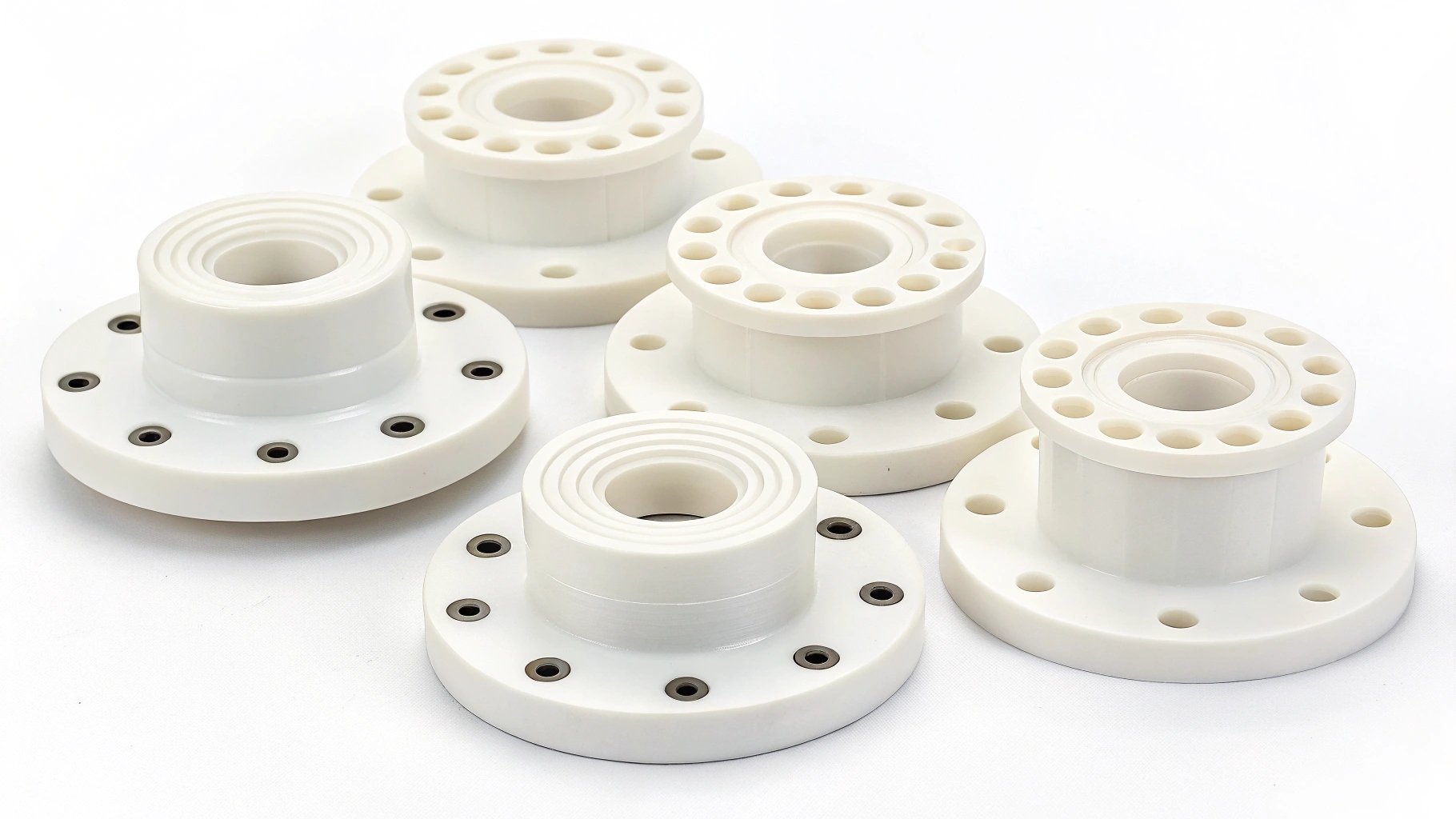
Major Challenges in Nylon Machining
- Thermal Issues: Nylon's low melting point makes it prone to deformation during machining.
- Tool Wear: Abrasion from nylon can dull cutting tools.
- Surface Finish: Achieving a smooth finish may require adjustments in cutting speed and tool geometry.
Addressing Thermal Issues
- Solution: Use air cooling or light liquid coolants to minimize heat generation. Avoid excessive feed rates and ensure sharp tools for clean cuts.
Managing Tool Wear
- Solution: Opt for carbide or diamond-coated tools. Regularly inspect and replace worn tools to maintain precision.
Improving Surface Finish
- Solution: Reduce cutting speeds for a polished finish. Use deburring tools or secondary polishing processes when necessary.
Best Practices in Nylon Machining
| Challenge | Suggested Solution |
|---|---|
| Thermal expansion | Controlled cutting speeds |
| Surface finishing | Secondary polishing steps |
| Tool wear | High-quality carbide tools |
Applications of Machined Nylon Parts
Machined nylon parts are versatile and essential for various industries.
Industries like automotive, aerospace, and medical rely on nylon parts for their strength and lightweight benefits.
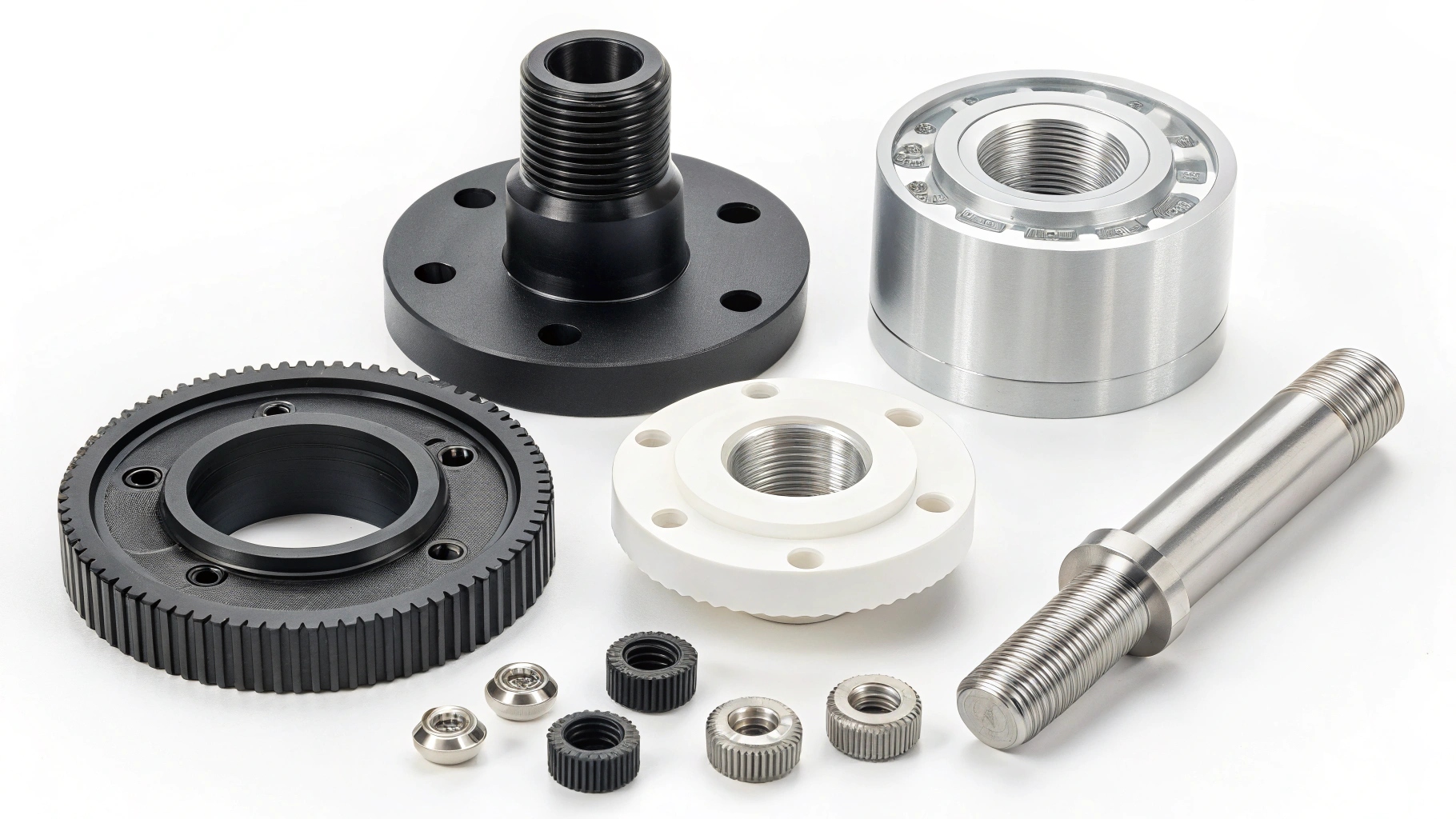
Key Applications
- Automotive: Nylon is used for gears, bushings, and under-the-hood components due to its durability.
- Medical Equipment: Lightweight and non-corrosive properties make it suitable for surgical tools and implants.
- Aerospace: Nylon components reduce weight while maintaining structural integrity in aircraft systems.
- Industrial Automation: Bearings, rollers, and seals benefit from nylon's wear resistance.
| Industry | Common Nylon Parts |
|---|---|
| Automotive | Gears, bushings, fasteners |
| Medical | Surgical tools, implants |
| Aerospace | Lightweight brackets, seals |
| Automation | Rollers, conveyor parts |
Future Trends
With advancements in nylon composites, the material's applications are expected to expand further. Innovations like reinforced nylon could enhance strength and thermal resistance for high-performance environments.
Conclusion
Nylon machining is essential for industries needing precise, lightweight, and durable components. By understanding nylon's properties, grades, and machining challenges, manufacturers can produce high-quality parts that meet diverse needs.

